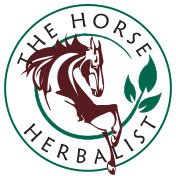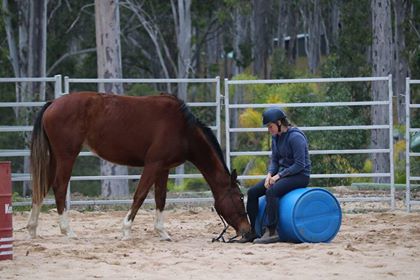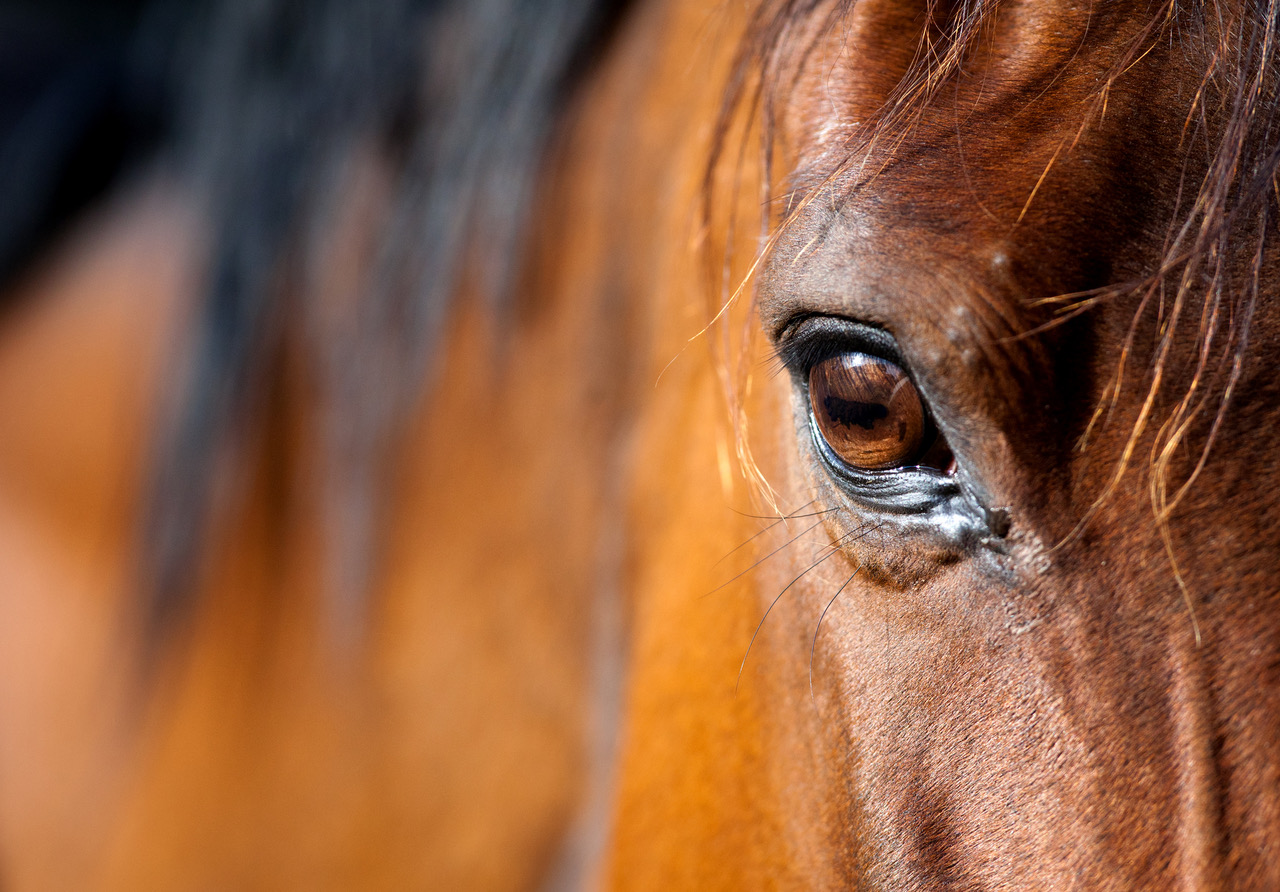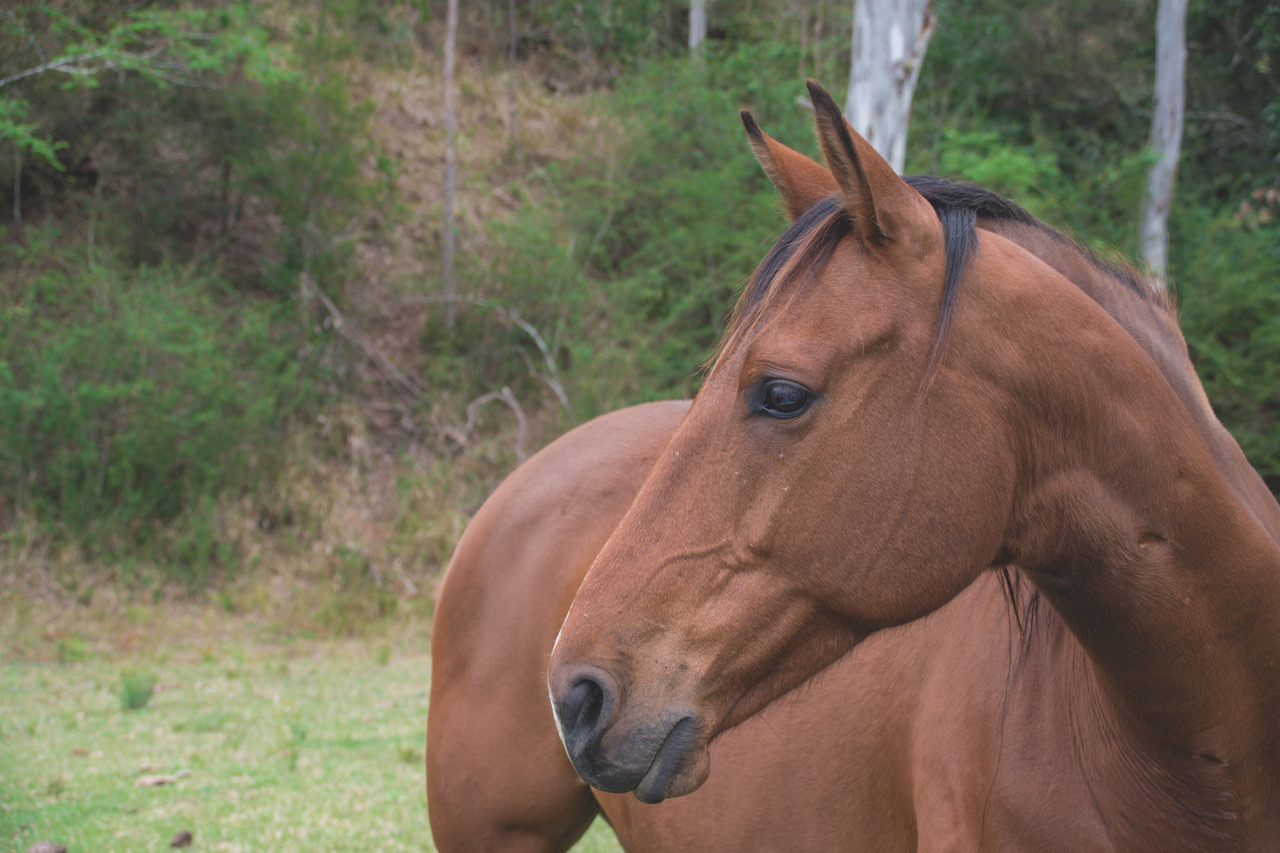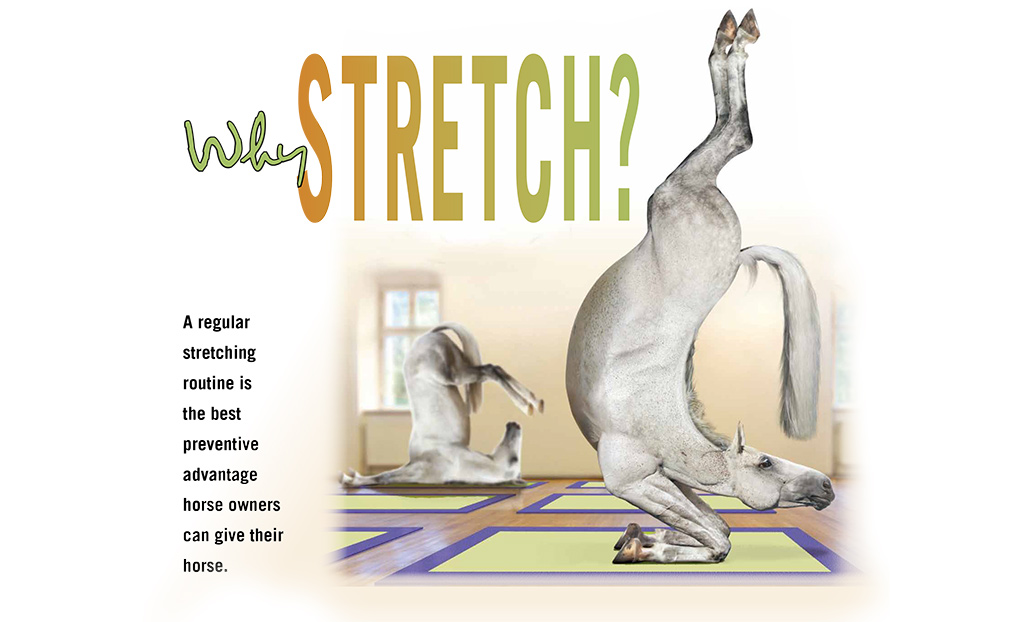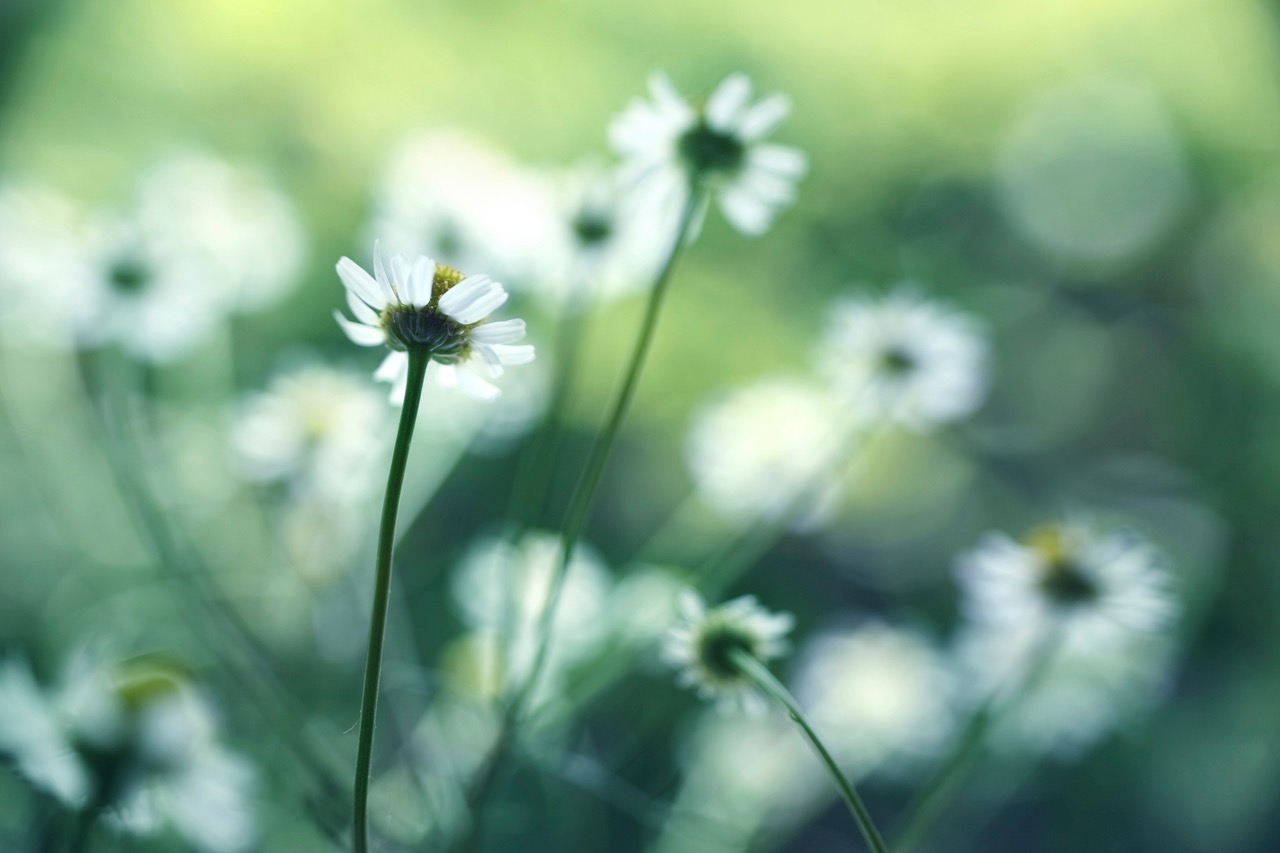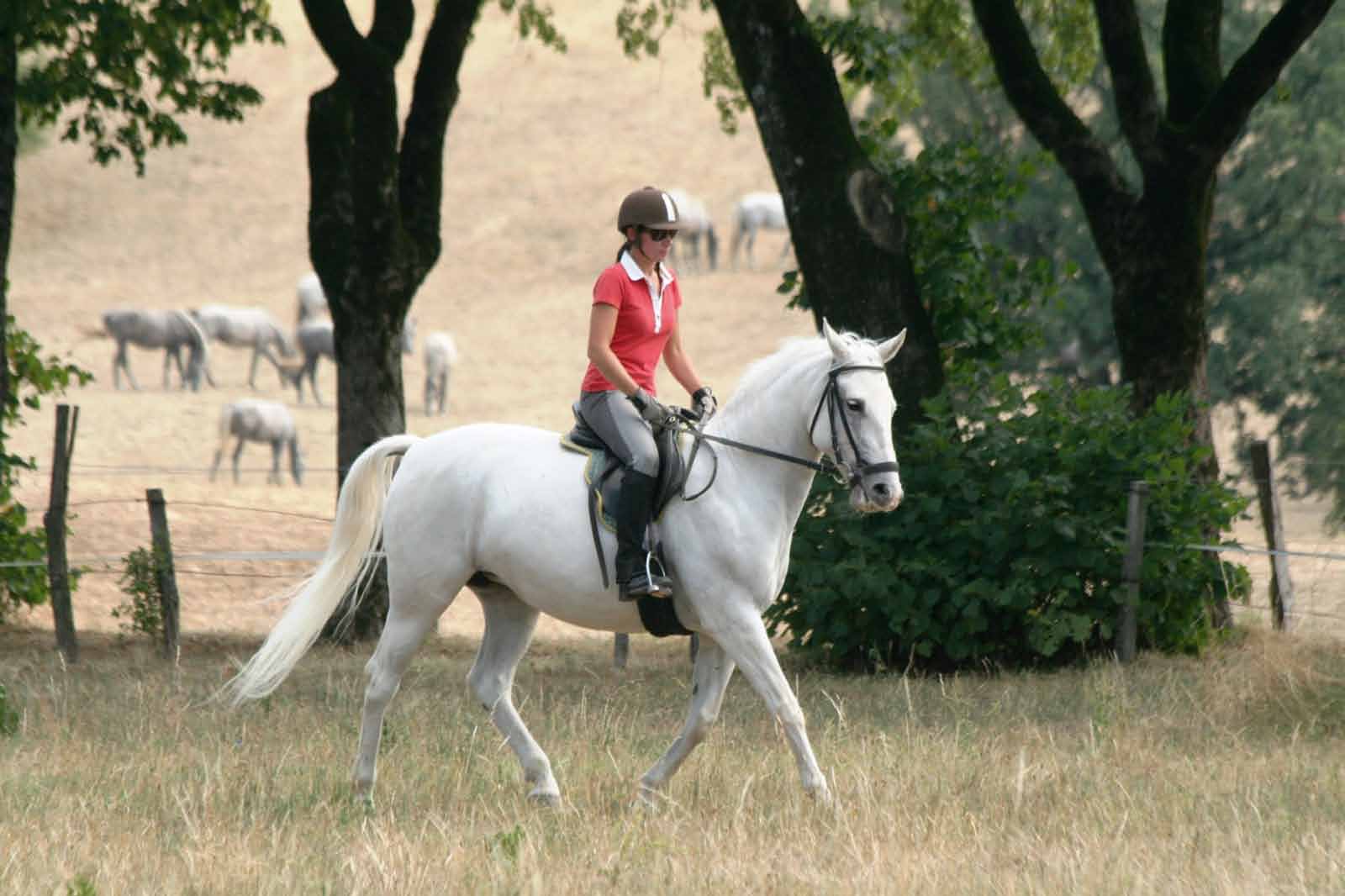Trust Your Instincts: Chanel’s Story
Horses are emotional beings, just like us, and carry stress and trauma with them. This is the story of mother and daughter show jumping team Anita and Alison Ostenfeld, and their beautiful 2 ½ year old filly, Chanel. When they brought her home for the first time it was clear she hadn’t been handled much, but Anita and Alison worked on gaining her trust through groundwork and gentle handling. Then they found Chanel had run through an electric fence - no physical injuries, thank goodness, so all seemed well. A week later, Alison found Chanel away from her paddock mate seemingly frozen in a corner
A podcast for horse lovers everywhere
A podcast for horse lovers everywhere Come Along for the Ride with me as we explore the stories of horse people and the passion they have to live their lives doing extraordinary things with these amazing animals every day. Tracy presents an in depth interview with Angela Davison. - iTunes https://itunes.apple.com/au/podcast/come-along-for-the-ride/id1373115308 https://comealongfortheride.com.au/episodes/ on Stitcher http://www.stitcher.com/s?fid=182587&refid=stpr
All of Shannan’s 10 must haves
We have been proudly sponsoring Shannan Goodwin, Dressage Rider for some years and watch with amazement as she soars into the dressage stratosphere with her horse Astro. Here are Shannan's top 10 must haves that keep her and her horses on top of their game: 1. SUPA-LICIOUS Equine Treats: they are an all natural treat and my horses are crazy about them. 2. Emergency Kit from The Horse Herbalist: including The Horse Herbalist's "Settle Petal" to calm young horse (& rider!) nerves, and all our first aid needs. 3. My Amerigo saddle: from Edwards Saddleworld Toowoomba, this saddle has done wonders for my riding. 4. Morning and afternoon
STABLE STAPLES + Vital Signs
This article was written by Angela Davison and printed in Hoofbeats and outlines the handy homeopathic, herbal mixes and Flower Remedies to have on hand in the stable or pantry to calm and soothe those inevitable moments of crisis! Shock or Rescue Remedy: Into mouth, and add to drinking water. May also be applied or sprayed onto any part of the body. When things go wrong (as they invariably will), always have this on hand for everyone involved (horse, hound, human or otherwise)! It is suitable for use for accidents or emergencies. Dose the injured and the handler. Dosing the injured horse will help the
The Nervous System
Today’s horse is the product of millions of years of evolution, during which survival depended on its ability to sense and respond to the environment in which it lived. This included escaping predators, being able to sense the temperature of its surroundings and identify food. While the need to escape predators may not be a requirement for the modern horse, their physiological response to fear is still to run. To achieve this the various systems and organs in the horse’s body must be linked so they work together. The adjustment of an animal’s response to changes in the environment and the complex linking
Super Immunity
The Herbs and Supplements that boost immune function and help prevent and heal infections The competition season is back in full swing, which means horses are travelling from place to place, staying in different yards or stables and often in close proximity to other horses and ponies. All too frequently horses arrive home harbouring a bacterial, viral or parasitic infection. Initially they may not present with any symptoms - their vital signs are normal, they just seem a little flat. This is the ideal time to administer immune-boosting and infection preventative herbs. The old rule of thumb is the quicker a ‘disease’ is treated the quicker
Liver Tone/Detox
The liver is a multifunctional organ (over 500 hundred functions have been identified) and is essential for life. It’s the body’s chemical factory that has many functions concerned with the processes of digestion, blood cleansing, sugar metabolism – therefore a factor in insulin resistance and metabolic syndrome. It disposes of worn-out blood cells, filters and destroys bacteria and neutralises poisons. It’s the chief supplier and balancer of glucose – the basic fuel of the body. It is therefore very important to help the liver function at it’s best. To do this it is suggested that a liver tonic be used to tone before embarking on
Why Stretch? The benefits of a regular stretching routine for horses
A regular stretching routine is the best preventive advantage horse owners can give their horse. For many horse owners, including equine stretching exercises into their management and training regime is a hands-on way they can help maintain the horse’s suppleness. If muscles aren’t being used properly, they shorten and contract and if this situation continues for a period of time, the tendons and ligaments will start pulling on the bones of the joints. Introducing stretches helps lengthen contracted muscles and extends them to their proper position, relieving pain by taking the stress off the joint. As well as reducing tension in the muscles thereby
Flower Remedies – What they are and How to make them
What are Flower Remedies? What can they do? How can they help? Flowers have been used for healing since time immemorial by humans and animals all over the world. The great healers of the past all believed that good health is the result of emotional, mental and spiritual wellbeing. Indeed without mind balance no physical cure will hold. Flower Remedies, given appropriately, can help us all back into mental/emotional balance. For example, we can all have times, humans, horses and others, of being too impatient, too controlling, overly fearful, jumping at shadows, gloomy, worried, over sensitive, aggressive, doubting oneself, lacking confidence and the list goes
Managing the health of the whole horse with Herbs
Horses, like humans, were treated with herbal medicines up until the 1930s; in addition horses would often self-medicate as herbs grew freely in the fields and hedgerows. With the advent of the industrial age however, came synthesised drugs and changes to agricultural practices which, over time, destroyed much of the natural flora. Medicine advanced greatly for humans and horses in the ensuing years and new drugs were formulated, including highly effective pain relievers (analgesics) and other life saving therapies. Whilst many of these new, ‘synthetic’ medicines were derived from plants and herbs (for example aspirin from willow bark and morphine from the opium poppy),
